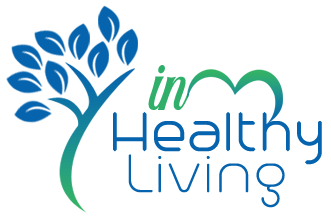Table of Contents
Bad Hangover
A bad hangover is begin after blood alcohol levels twitch to fall. Rendering to some experts, the worst symptoms occur when levels reach zero. The key element seems to be “drinking to intoxication”; how much you drank to get there is less critical. Several studies propose that light and moderate drinkers are additionally vulnerable to getting aftermath than heavy drinkers. Yet there’s also a seemingly contradictory research presentation that persons with a family history of alcoholism have worse hangovers. Researchers say some people may have drinking problems because they drink to relieve hangover symptoms.
What is a Hangover?
A hangover is when you have cold physical and cerebral symptoms after drinking too much alcohol. However, suppose you notice signs of an alcohol use disorder, heavy drinking within a short period, severe withdrawal symptoms or frequent hangovers that affect your quality of life. In that case, you need to consult your healthcare provider immediately.
When does a Bad Hangover Start?
Hangovers usually begin several hours afterwards you stop drinking. However, the symptoms can vary in intensity, depending on the person and the type and amount of alcohol consumed. According to Dr Couped, alcohol enters the bloodstream within minutes of your first sip. It is then absorbed by the digestive tract starting in the stomach before the liver processes it as your body breaks it down, also known as alcohol metabolism.
During alcohol metabolism, a toxic by-product called acetaldehyde is created, which your body works to eliminate, explains Peter Malamet, DO, an emergency medicine physician at Mike O’Callaghan Military Medical Center in Las Vegas, Nevada.
What are the Symptoms of a Bad Hangover?
Symptoms of aftermath comprise:
- Depression, anxiety or irritability.
- Disturbed sleep.
- Dizziness and vertigo (a sensation of touching when you’re not).
- Fatigue and weakness.
- Headache, red eyes and compassion for light and sound.
- Increased pulse and blood pressure; a rapid heartbeat.
- Muscle aches and weakness.
- Nausea, vomiting and stomach pain.
- Sweating and thirst.
- Tremor (shaking).
You’re also more likely to have memory, attentiveness, and coordination problems when you have a hangover. Of course, the severity of your indications depends on how far you drank and for how long. But your health and other factors play a role. For example, some people get a hangover after even one drink. Other people who beverage heavily don’t get symptoms.
How Long Does a Hangover Last?
Your symptoms are typically worse when your blood alcohol level revenues to zero. Symptoms can last about a day or perhaps longer.
How Common are Hangovers?
Hangovers are very shared among people who overeat liquor. In one study, investigators found that about 75% of people who drank the night excessively before reported hangover symptoms. However, the researchers concluded that 25% to 30% of people who drink might resist hangovers.
What Causes a Bad Hangover?
Alcohol causes hangovers, but it’s not simple. Drinking affects your body in several ways:
Direct Effects of Alcohol
Dehydration: Alcohol is a diuretic. It causes you to pee more, losing a lot of fluid. (You can misplace up to a quart of urine in the hours after consuming four drinks.) Liquor also reduces the release of the hormone vasopressin. This hormone balances your body’s fluids. Dehydration causes thirst, fatigue and headaches.
Electrolyte imbalance: Your body needs certain substances, called electrolytes, to perform at their best. Passing large amounts of urine tosses electrolytes out of balance.
Gastrointestinal problems: Alcohol irritates the coating of your abdominal and bowels. It slows the rate of digestion of cumulative fatty materials in your liver, stomach, and pancreas secretions. All these processes lead to upset abdominal and nausea.
Inflammation: Alcohol increases irritation in your body. It can donate to the overall unwell feeling of a hangover.
Low blood sugar: This effect typically happens in persons with alcohol use illness. They may binge drink and bomb to eat appropriately over a bad day. As the body processes alcohol, it crops lactic acid. Lactic acid decreases blood sugar manufacture, resulting in fatigue, sweating, hunger, and shakiness.
Disruption of sleep and other processes: While liquor is calming and can promote sleep, hangover symptoms usually interfere with sleep. You may have sleeplessness as your blood alcohol levels get lower, so you feel fatigued. Alcohol also makes it problematic for your body to regulate its temperature and interferes with hormone production.
How much Alcohol Causes a Bad Hangover?
Having more than one drink per time can cause glitches. Your body needs around an hour to metabolize, or process, one drink, which is:
- Twelve ounces of regular or light beer: around one can (5% alcohol).
- 8 to 9 grains of malt liquor or many craft beers: approximately half a pint glass (7% alcohol).
- Five ounces of table wine: about one glass (12% alcohol).
- 5 ounces of liquor: approximately one shot (40% alcohol).
How is a Bad Hangover Treated?
Many hangover remedies claim to treat the aftermath. But they’re often not based on science, and some can be dangerous. For example, eating more alcohol (“hair of the dog”) will not cure a hangover. Instead, more alcohol increases the toxicity of the whisky already in your body.
Steps you can take to advance hangover symptoms include:
- Eating bland foods with complex starches, such as toast or crackers. You’ll boost low plasma sugar levels and reduce nausea.
- Drinking water, juice, b, Roth and other nonalcoholic beverages reduce dehydration.
- I am getting sleep to counteract fatigue.
- Taking antacids to help settle your stomach.
You are trying aspirin and other nonsteroidal anti-inflammatory drugs (NSAIDs), such as ibuprofen or naproxen, to help your headache or muscle ache. Again, though, use them sparingly since they can upset your digestive system. Also, do not take acetaminophen — it can be toxic to your liver when combined with liquor.
Being patient: Hangover indications tend to ease up for eight to 24 hours. After that, your body has to clear the toxic by-products of alcohol, rehydrate, heal tissue and restore purposes and activities to normal.
Can I Speed up Hangover Recovery?
While people may claim that coffee or a shower helps you recover faster, there’s no way to speed up recovery. The brain and form need time to recover and heal; there’s no way to fast-track that.
Are Hangovers Dangerous?
Hangovers can cause more than just unpleasant indications. With a hangover, you’re not thinking clearly. Alcohol impairs your attention, decision-making processes, and muscle coordination. As a result, you might engage in risky behaviour you wouldn’t normally do. For example, being heavy during a hangover can be dangerous or even deadly. People can also injure themselves at work.
When does a Hangover Need Emergency Care?
Call 911 if you’re with someone who’s been drinking and has any of these signs:
- Breathing that’s slow (fewer than eight breaths a minute) or irregular (if there’s a gap longer than 10 seconds between breaths).
- Cold to the touch (hypothermia).
- confusion
- They were passing out (unconscious) or worrying about staying conscious.
- seizures
- Severe vomiting.
- Skin that’s pale or blue (in persons with dark skin, checkered gums, lips, and whites of the eyes).
Conclusion
Hangovers can be bothersome and, sometimes, sore too. There are many home remedies claiming to cure hangovers magically. Still, the best action for you is to be patient and rest, allowing your body to eliminate all the toxic by-products from its scheme. Drinking plenty of water and eating food rich in carbohydrates are some basic ways to help recovery. Hangovers characteristically do not require any medical intervention.

